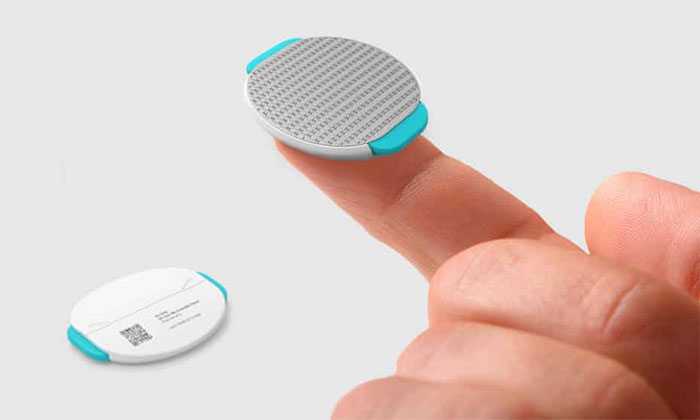The UK company Emergex will soon begin clinical trials for a second-generation Covid-19 vaccine in the form of a skin patch that uses T cells to eliminate infected cells.
Founded in Abingdon in 2016, Emergex aims to develop T cell vaccines, an intellectual property of Professor Thomas Rademacher, the CEO of Emergex and an honorary professor of molecular medicine at the University of London.
The vaccine will generate T cells to quickly eliminate infected cells from the body, thereby preventing the replication of the virus and the disease. While antibodies produced by current Covid-19 vaccines attach to the virus and prevent it from infecting cells, T cells will seek out and destroy virus-infected cells. Other vaccines, such as Pfizer/BioNTech and AstraZeneca, also generate T cell responses, but to a lesser extent.

A Covid-19 vaccine patch from Emergex. (Photo: Latch Medical)
The Swiss drug regulatory agency has “given the green light” for Emergex to conduct initial human trials in Lausanne. 26 volunteers will receive varying doses of the vaccine, starting from January 3, 2022. Initial trial results are expected to be published in June.
Robin Cohen, the company’s commercial director, stated: “This is the first time a regulatory agency has approved a Covid-19 vaccine for clinical trials with the sole purpose of generating a T cell response. In the absence of an antibody response, these T cells will seek out and destroy infected cells.”
Comparing the process to an asteroid colliding with a planet, Cohen likened the virus to an asteroid. It strikes the planet, and a viral code – a marker of that virus – quickly appears across the surface. These markers will be recognized as foreign by T cells, which will destroy them before new live virus strains can emerge.
Current Covid-19 vaccines primarily generate antibody responses that weaken over time, meaning people need booster shots to maintain protection against SARS-CoV-2.
The Emergex vaccine operates differently by rapidly killing infected cells. This means it could provide longer-lasting immunity – potentially for decades – and may also better combat virus variants.
Additionally, this new generation vaccine will be developed as a skin patch, about the size of a fingernail, containing ultra-fine microneedles. This vaccine can be stored for three months at room temperature, eliminating the need for freezing or refrigeration.
However, Emergex’s vaccine is not expected to hit the market before 2025, based on the typical timeline for vaccine development. Last year, Covid-19 vaccines were developed within months as the licensing process was expedited for emergency use. However, this emergency phase has now concluded.
Robin Cohen further mentioned that the idea of a T cell vaccine is not new. For instance, Professor Sarah Gilbert at the University of Oxford has been developing the AZ/Oxford vaccine for seasonal flu for over a decade.
Emergex is also testing another T cell vaccine for dengue fever in a separate clinical trial in Switzerland, with initial results expected in January 2022. According to the World Health Organization (WHO), half of the global population is at risk of dengue fever, and there is currently no specific treatment or vaccine for this disease.
The UK vaccine research company also expresses its desire to invent vaccines against seasonal flu, Zika, Ebola, and other infectious diseases.


















































